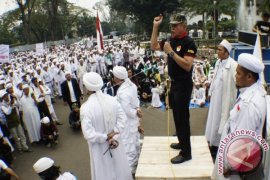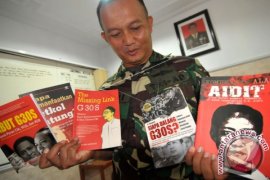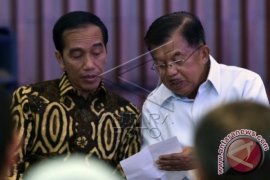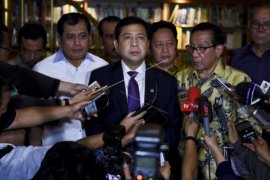The 1965 tragedy started with the kidnapping and murder of several military generals. The PKI was blamed for the atrocity. The efforts by the military to eliminate PKI supporters rebelion caused some of PKI supporters throughout many parts of the country was killed. Survivors of the 1965 tragedy and some of civil society organization including a historical observer have claimed millions of people were imprisoned without being trial.
After botched-betrayal action from PKI supporters and to minimilize the PKI existance, the government of Indonesia had published Presidential Decree No. 28/1975, for example, prevents members or sympathizers of the Indonesian Communist Party (PKI) who worked as civil servants from receiving their pensions. Meanwhile, Presidential Decree No. 16/1990 prevents former PKI members from working as civil servants or joining the Indonesian Military.
Responding to solve the mystery of 1965 tragedy, the government for the first time in history organized an official event to openly discuss the 1965 massacre, involving the survivors, the government, the National Commission on Human Rights (Komnas HAM), academics, and human rights groups.
The symposium, spearheaded by Komnas HAM and the Presidential Advisory Board (Wantimpres), will discuss rehabilitation and compensation for the victims of the tragedy, which took place more than 50 years ago and remains a deeply sensitive topic in Indonesia.
The event will occur ahead of a May 2 deadline for settling serious past human rights violations, as declared by Political, Legal and Security Affairs Minister Luhut Pandjaitan last month.
The two-day event, entitled "Dissecting the 1965 tragedy", comprised discussions among stakeholders and aimed to provide recommendations for the government on the efforts to settle the past atrocities.
The organizers invited three sides to the symposium: members or relatives of the Indonesian Communist Party (PKI) who were the primary victims of the tragedy, ex-military personnel who were involved in operations against members of the PKI, and those who were accused of being PKI members and communist academics.
The two-day symposium on the 1965 tragedy ended on Monday (18/4), but historians could not reach any conclusions about this dark episode in Indonesian history, although the organizers tried to invite all related parties to participate in the discussion.
Quoting from www.thejakartapost.com, the kidnapping and murder of six Army generals on Sept. 30, 1965, led to a purge of communists and alleged communist sympathizers by the military under the leadership of Soeharto. In the purge, countless thousands were murdered, tortured and arrested without trial.
It is estimated that between 500,000 to 1 million people were killed during the cleansing of people with any leftist connections, regardless of their age or level of connection (http://www.thejakartapost.com/news/2016/04/20/survivors-of-1965-desperately-seek-rehabilitation.html)
Meanwhile, former Army Special Forces (Kopassus) member Lt. Gen. (Ret) Sintong Pandjaitan was a regiment commander of the Army Para Commando Regiment (RPKAD), which led the anti-PKI campaign in areas across Indonesia.
At the symposium, Sintong denied that the number of victims killed after the G30S/PKI incident amounted to hundreds of thousands.
"It's a lie," the retired military general said as quoted by tempo.co. "Such a lie has tainted our honor as RPKAD members," he went on.
Sintong was referring to the results of an investigation by a fact-finding commission formed by President Soekarno in December 1965 and led by then-Home Minister Maj. Gen. Soemarno. The team concluded that the number of victims was 80,000. President Soekarno was not sure about the investigation results and confided that to a team member, Oei Tjoe Tat. "It is around five to six times higher [than the 80.000 figure]," said Oei, as quoted by Julius Pour in his book Gerakan 30 September.
Reconciliation ?
Nahdlatul Ulama (NU), the largest Islamic outfit in Indonesia, has called on the government to uncover the truth behind the violence and repression that wracked the nation in 1965-1966.
According to NU executive Imam Aziz, the government needs to continue to promote dialogue and shed light on the tragedy, which saw the deaths of around 500,000 people and unjust imprisonment of millions accused of links to the Indonesian Communist Party (PKI).
"The most important thing is to reveal all the facts, and then determine how to continue," Imam told thejakartapost.com, adding that revealing the truth would put an end to the "glorification" of the perpetrators, who regarded themselves as victors and heroes.
NU itself is alleged to have been implicated in the 1965-1966 communist purge, frequently clashing with PKI sympathizers across Java around that period.
In 2000, then president Abdurrahman "Gus Dur" Wahid publicly apologized to the victims on behalf of Pemuda Ansor, NU's youth wing, for helping the military commit its atrocities; the apology remains controversial today. The apologies were a good step forward for NU, he added.
According to Imam, NU has yet to decide on a firm position in regard to the latest government efforts to settle past human rights abuses and reconcile with the victims, but the ulemas are expected to decide one soon. "I hope NU will take a positive position, instead of further hampering [the reconciliation process]," Imam said.
Survivors of the 1965 tragedy have called for reconciliation through the revelation of the truth behind the mass killing of members and sympathizers of the Indonesian Communist Party (PKI) and their families. It is believed that at least half a million people were killed.
Speaking at a national symposium in Jakarta, victims of the 1965 anti-communist purge said reconciliation was needed, because, while some of the survivors had forgiven what had happened, others, especially those living outside Java, still experienced discrimination. "Many people think of reconciliation as: 'Please, forgive us for what has happened in the past'. But actually, the word 'reconciliation' should come from the victims," 1965 survivor Ilham Aidit, son of the late PKI leader DN Aidit.
The government of Indonesia stance is a clear. Indonesia's government doesn't to apologize to PKI because the botched of PKI efforts to change state ideology, Pancasila to be communism ideology. The scheme of reconciliation can be reached if the 1965 tragedy didn't solve with judicial process, but with non judicial process.
Crucially, the mystery of 1965 tragedy has still been blurred because many of vested interest group which come from Indonesia and abroad were politized these issue which could be had "hidden agenda" to raise communist ideology in Indonesia. We must remember that May is a month of communist anniversary in Indonesia and these group's have been made a new organization which handle and coordinating 1965 tragedy victims including PKI sympathizers. So, PKI sympathizers and PKI supporters have raised and their still have a mission to reveange. The called themselves as "Relatives in history or Keluarga Dalam Sejarah."
The past proxy war ?
Human Rights Watch (HRW) has said an apology over the atrocities of 1965 would be futile unless the whole truth was revealed. The International NGO said the government should be held accountable for its actions related to the killings of people who were considered associated with communism, including for what is hidden in secret files held by the US government.
The organization is pushing the President Joko "Jokowi" Widodo administration to ask the US government to release the documents related to the anti-communist purge to comply with a request made by Indonesia's National Human Rights Commission (Komnas HAM) in March.
HRW executive director Kenneth Roth, who is currently in Indonesia, is to speak with government officials, human rights organizations and other relevant stakeholders about the mass killings. "You can't apologize over a blank slate," Roth said.
The American human rights advocacy group, together with a local group called the Commission for Missing Persons and Victims of Violence (KontraS), are urging the government to conduct an effective accountability process. Roth stressed the importance of beginning the process of reconciliation with a public hearing so as to reveal the extent of the impacts of the massacre, thereby providing the basis of a factual record that the government can then officially acknowledge.
Furthermore, he also urged the incumbent government to take a clear stance in its efforts to resolve the human rights violations, especially in regards to the impacts still felt by the victims and relatives of victims of the tragedy relating to the stigma and persecution for being affiliated, or being accused of being affiliated, with the now defunct PKI.
Roth commended the request made by Komnas HAM, which met with US State Department officials to formally ask for the release of files from the CIA, the Defense Intelligence Agency and other agencies.
The US would have such records, Roth continued, and should Jokowi put his weight behind the request, US President Barack Obama would likely be willing to open up its archives, he added. "We want to know the working level involvement between the US government and the killers in 1965," he said. Operational detail including cables, diplomatic messages and CIA messages would be useful as part of the effort to tell the history of the violation, Roth further said.
Meanwhile, US filmmaker Joshua Oppenheimer, who made two critically acclaimed documentaries on the 1965 genocide, The Look of Silence and The Act of Killing, also recently urged the US Senate to make available all documents relating to the US' role in the national tragedy.
Referring on Kenneth Roth's opinion, we are understanding that the 1965 tragedy is actually a part of proxy war which is done by United States in the name of prevent communist ideology spreading in the era of cold war. This was confirmed by the making of the film of The Look of Silence and The Act of Killing. Truthfully and actually, these film is a propaganda film. The ones doesn't describing a truth facts because does not rule out the possibility if these ones has produced as propaganda purpose. However, we must alert on the rise of the communist group in Indonesia, because now they are moving under the ground and on all fronts. We must defend our national ideology, Pancasila whatever any risks will be taken.
*) The writer is a historic observer at Galesong Institute and LSISI Jakarta.
The Mystery of 1965 Tragedy, Can It Be Solved with Reconciliation?
Sabtu, 23 April 2016 12:08 WIB
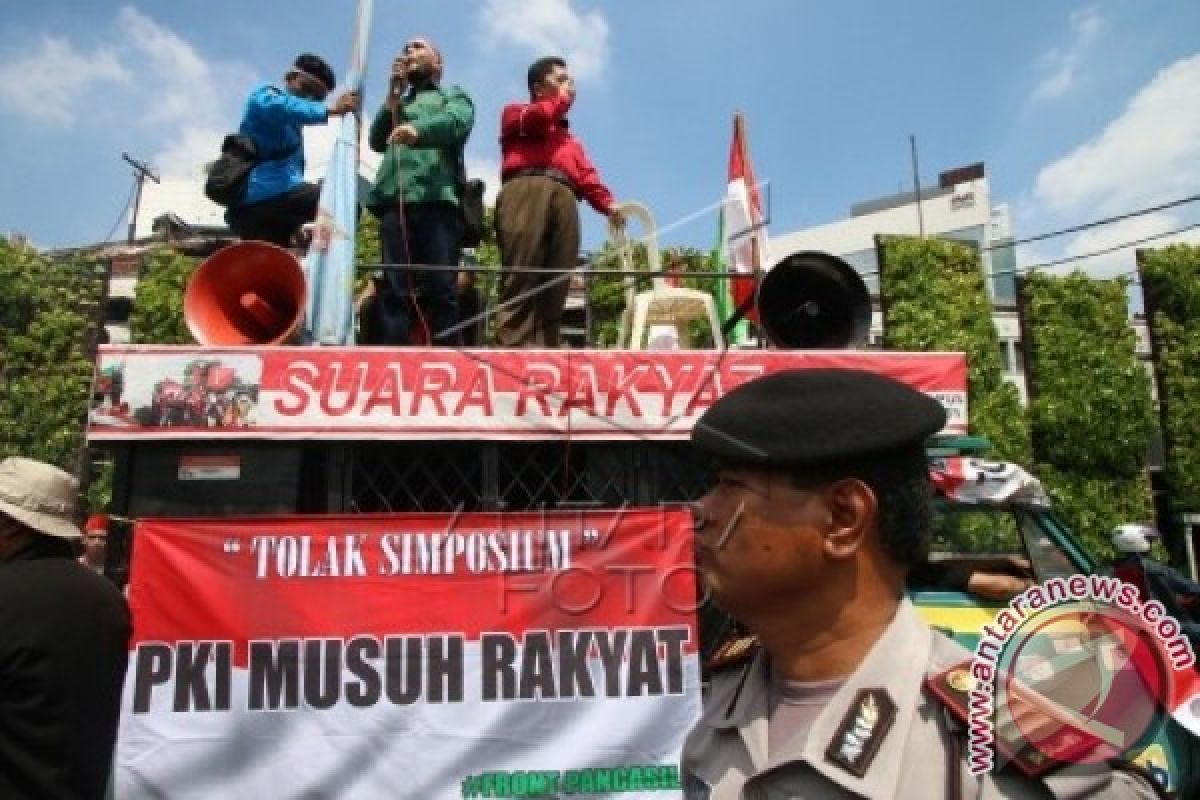
Massa dari Front Pancasila ketika melakukan aksi di depan Tugu Tani, Jakarta. Mereka menentang pelaksanaan kegiatan Simposium Nasional dengan tema "Membedah Tragedi 1965, Pendekatan Kesejarahan". (ANTARA FOTO/Rivan Awal Lingga/Dok).
We must defend our national ideology, Pancasila whatever any risks will be taken.



